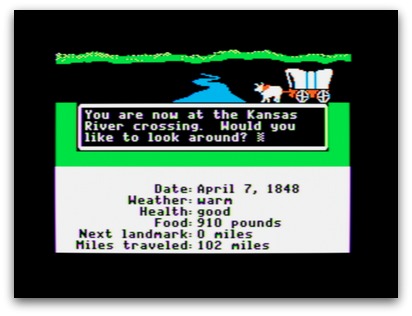

"They were either traders, guides, or would circle wagons and attack," she explains. The result was a lopsided, monolithic and largely untrue representation of Indigenous people. "The issue I had with Oregon Trail is that it always put Native people in relation to settlers,” says LaPensée, who is also an assistant professor in the Departments of Media & Information and Writing, Rhetoric & American Cultures at Michigan State University. Set in 1890 rather than 1848, When Rivers Were Trails introduces an Anishinaabeg person trekking from Minnesota to California after being forced from their land. Oregon Trail-an iconic 2D point-and-click adventure game that follows a white settler family's mid-19th century migration from Missouri to the West Coast as they barter for food, shoot buffalo and (more often than not) die from dysentery-has been adapted by the Anishinaabe-Métis video game designer Elizabeth LaPensée to foreground a Native American perspective on westward expansion.

Gen Xers and old Millennials rejoice-your favourite retro computer game is getting a post-colonial reboot.


 0 kommentar(er)
0 kommentar(er)
